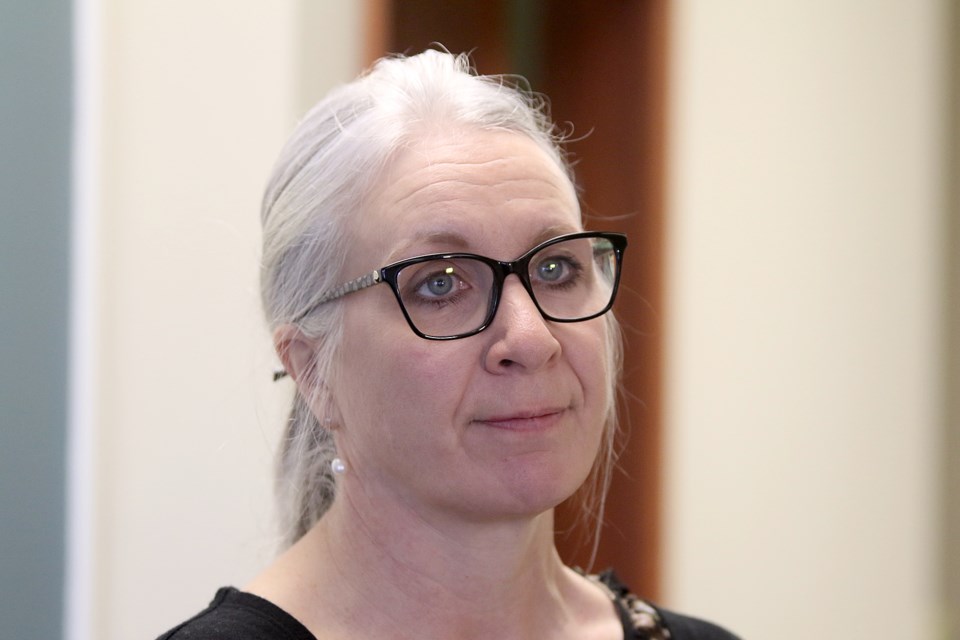THUNDER BAY – Housing was a key plank in the federal Liberal government’s latest budget, and well it should be, said Thunder Bay-Superior North MP Patty Hajdu.
Hajdu, the minister of Indigenous Services, pointed to a $4 billion accelerator fund to accelerate the development of 100,000 housing units nationwide over the next five years, the introduction of a tax-free savings account to help potential home buyers save up to $40,000 and $4 billion earmarked for Indigenous housing over the next six years as indicators of how seriously her government takes the country’s housing crisis.
Hajdu said the tax-free mortgage savings account is similar to the long-in-place tax-free savings account that allows investors to contribute up to a specific amount each year and not have to pay taxes on any earnings.
“This will be specific to first-time home buyers, where they can save money in a specific fund for their first home purchase that is interest-free savings and interest-free at withdrawal, as well,” Hajdu said.
“That gives people the ability to save that helps them build up an asset in terms of that account that they can then use to buy their first home.”
According to a report published by the Canadian Real Estate Association, the average price of a Canadian home has surged to $816,720, a 20 per cent increase over 2021, though the number drops by more than $175,000 if Toronto and Vancouver are removed from the equation.
The median sale price of a single-detached home in Thunder Bay in February 2022, according to the Thunder Bay Real Estate Board, was $311,600, well below the national average.
Hajdu said the housing strategy was designed to help average Canadians access home ownership on a variety of fronts, not just savings.
“It also works on the supply side, to try to free up some of the supply. We know that simple economics says when you’re tight on supply, it will increase the cost of the good, and we’re seeing that across the country.”
Hajdu said the federal government has committed, in partnership with municipalities and provinces, to more affordable housing by doubling the national housing strategy and working with communities to more quickly free up land for building.
“These are the kinds of things that are going to help increase supply and hopefully drive down the cost, but in the meantime we’ll support young people who are looking to get into the housing market in every part of the country,” she said.
The feds have also promised to ban foreign purchases of homes in Canada for at least two years, through there are exceptions, including for foreign students, and to take aim at blind bidding, the practice of hiding offers from other prospective homeowners.
It’s not nearly enough, said opposition MP Eric Melillo, who represents Kenora for the Conservatives in the House of Commons.
“On the face of it I would say it definitely missed the mark,” he said. “It just doesn’t go far enough. The government has provided a $500 benefit for young Canadians looking to buy a home and I don’t know anyone who is struggling to afford a house who is $500 away. That’s just something that shows the government just doesn’t understand the hardships Canadians are facing.”
Melillo said he was pleased to see region-specific projects, such as the Experimental Lakes Area and Lake of the Woods, mentioned by name in the budget.
Charla Robinson, president of the Thunder Bay Chamber of Commerce, said she sees positives and negatives in the budget, which advances dental care, Indigenous reconciliation, diversity and inclusion, increases defence spending by $8 billion over five years and tackles the environment and climate change.
“I’m really pleased to see the focus on a critical mineral strategy and money to put into that because as we know, Northern Ontario specifically has a lot of these critical minerals that are mining projects that are just waiting to get going,” Robinson said, adding the phase-out of small business taxes is also a positive.
On the negative side, she’s disappointed there wasn’t more support for sectors hit hard by COVID-19 or increased access to broadband, an issue that particularly affects Northwestern Ontario.
